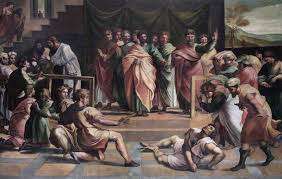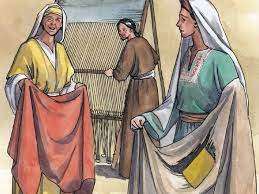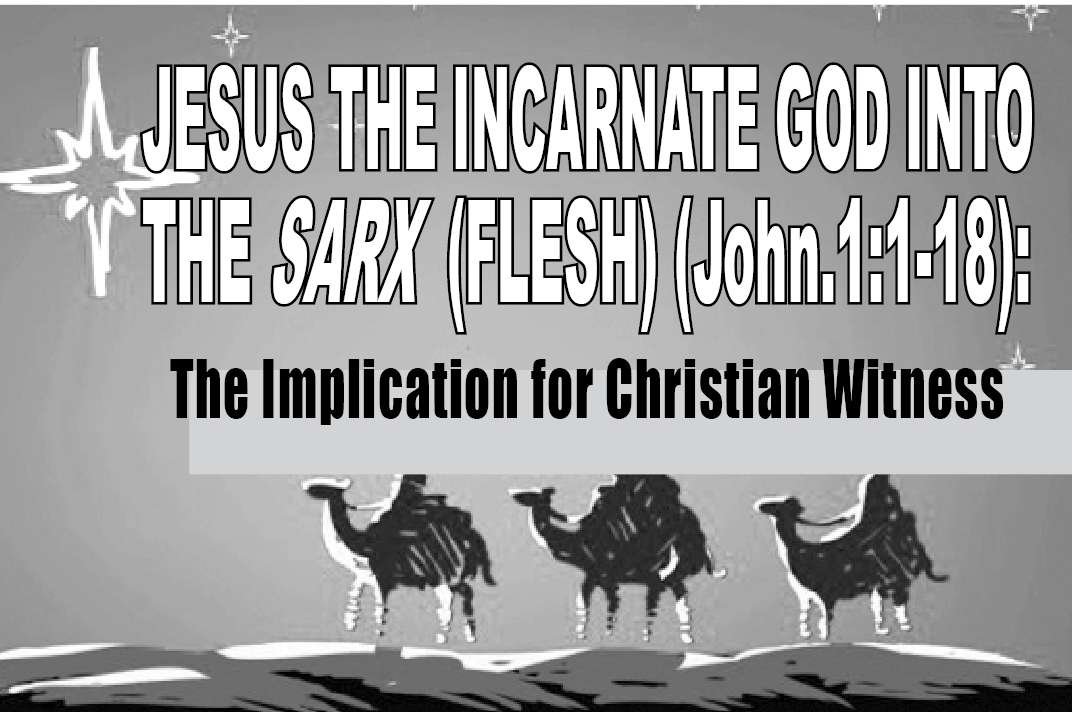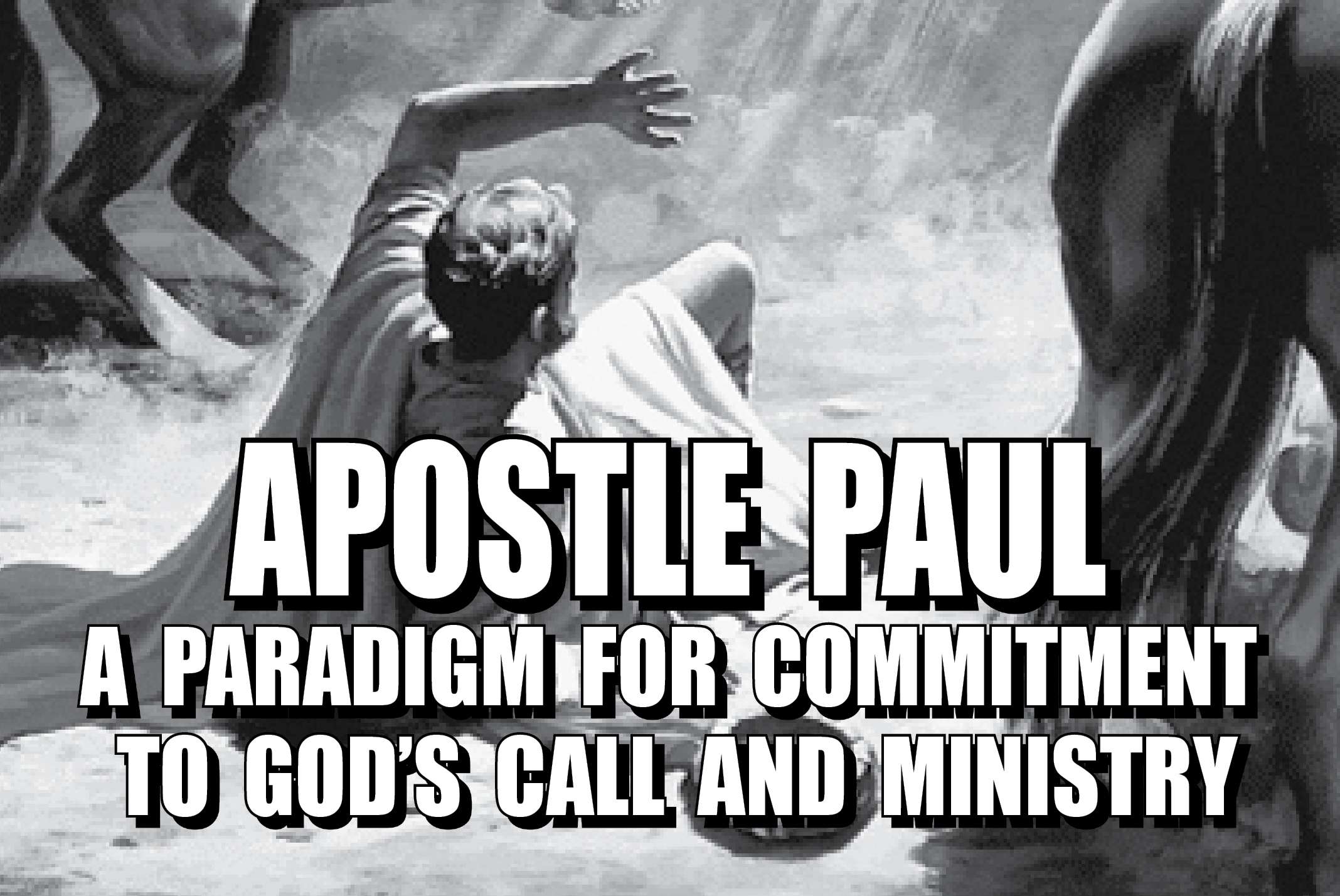

A Comparative Analysis: Examining Generosity and Greed through the Lens of Barnabas and Ananias
Dr. Jose L.
Through the story of Barnabas, Luke skilfully illustrates the distinct generosity of the early ecclesia. Similar to this, the story of Ananias and Sapphira serves as an illustration of how greed and deceit shattered the believers’ unity. These two stories run side by side (Acts.4:34-37; 5:1-11) in the context of the first-century infant ecclesia where they were enjoying their societal life of unity with ‘one heart and one soul’ (Acts.4:32). The Christian community identified themselves with their witnessing life of fellowship (koinonia) through devoting themselves to the teaching of the apostles, breaking of bread, prayers (Acts.2:42) and generously giving away their material possessions for the sake of the poor.
Most likely, the stories of Barnabas and Ananias-Sapphira served as moral examples for the young Christian church to follow when it came to sacrificially giving away their wealth and property for the benefit of the community. Luke uses these examples to illustrate the contrast between giving on the one hand and greed on the other.
The first-century Christian community in Jerusalem is probably formed in the socio-political context of imperial domination and economic depravity. Poverty was widespread among the society and there was a big divide between the rich and the poor. Debt and economic inequality were social realities of the poverty-stricken Roman Palestine. They were marginalized by the Greco-Roman political leaders as well from the Jerusalem Jewish religious leaders. By this time the Christian community was formed as a counter cultural movement by following the virtues of fellowship (koinonia) as well as love for the fellow being (philanthropia). They regularly gathered together in believers’ houses and participated in the community meals (agape meals) contrasting the temple-centered dominant Jewish worship system.
The Barnabas, Ananias, and Sapphira stories are portrayed after giving the two summary narratives of the first-century ecclesia which exemplified the community life with utmost importance (Acts.2:42-47; 4:32-37). They had everything in common and they ‘broke bread in their homes and ate together with glad and sincere hearts’ which explains their unity (Acts.4:46). Their new lifestyle is portrayed by ‘for as many as owners of lands or houses’ sold and brought money from the sale at the feet of the apostles. The money is being ‘distributed to each as anyone having need’ (Acts.4:34). The communal sharing brought favour of all the people and brought rapid growth of the ecclesia (Acts.2:47).
Barnabas: A Paradigm for Generosity and the Son of Encouragement
Luke explains the contrasting nature of generosity versus greed in the society that brought blessings in the life of Barnabas and death to the lives of Ananias-Sapphira. Similar examples of greed and simultaneous judgmentare in the life of Judas Iscariot (Acts.1:18,19) and Simon the sorcerer (Acts.8:9-23). Luke imparts to the young community the value of good financial stewardship through these episodes.
Barnabas was the nickname given to Joseph, the son of encouragement. He was a prominent member of the first-century Christian community. He is a Diaspora Jew from Cyprus who was renowned for his act of generosity and compassion (Acts.4:36). Later in the historical description of the missionary journeys he was named as apostle along with Paul in the context of ministry in Lystra (Acts.14:14).
In the first century context, political power was attached to wealth and possessions, and in this milieu, Barnabas’ generosity is displayed by selling a field he owned and sacrificially bringing the money to the apostle’s feet (Acts.4:36-37) for the needs of the community. His action emphasizes the importance of selfless giving contrasting the benefactor system of wielding social power through making donations.
Later we see the role of Barnabas in introducing Paul to the Jerusalem apostles where the apostles were afraid to have him because of the testimony heard about the persecution made by Paul. In the early part of the spread of the gospel in and around Palestine Barnabas was sent to Antioch to investigate the reports of believers of Cyprus and Cyrene who were making a great impact among the Gentiles (Acts.11:20-24). He also brought Saul with him from Tarsus to Antioch where they were together teaching and building up the Christian ecclesia in Antioch (Acts.11:25-26). Meantime, they were sent to deliver a contribution for famine relief to the believers in Jerusalem (Acts.11:27-30).
Barnabas along with Paul was commissioned by the Gentile ecclesia in Antioch and prayerfully sent them for the missionary journey (Acts.13:1-3). In this missionary trip the local Lystran community celebrated Barnabas by calling him “Zeus” (supreme god of the ancient Greeks) after the healing of a crippled man (Acts.14:8-18). During this missionary trip, there were so many Gentiles in Asia Minor who opened their hearts to Jesus (Acts.14:27; 15:12). Later Barnabas took John Mark with him to Cyprus and continued his missionary work (Acts.15:38-40). He was portrayed as the ‘encourager’, ‘good man’, and ‘full of Holy Spirit and faith’ (Acts.11:23-24).
Ananias and Sapphira: A Paradox of Generosity in Greed and Deception
In contrast to the exemplary nature of generosity shown by Barnabas through giving away the riches for the sake of the poor believers in Jerusalem and a silent man behind the building up of the early Christian ecclesia, Luke, portrays the opposite nature of greed and deceit through the family of Ananias and Sapphira. They were also members of the early Jerusalem Christian community who withheld a portion of the property in the process of selling and bringing the proceeds at the feet of the apostles (Acts.5:1-11). They must have been motivated through the generous giving of Barnabas and the spirit of communal sharing which is a hallmark of the early ecclesial community. However, they kept a portion of the proceeds for themselves while pretending the entire sale amount before the apostles. Luke portrays this story as a negative example of community life in Jerusalem.
Ananias and Sapphira carry out publically the act of sacrificing their wealth similar to Barnabas and other wealthy Christians. However, because of greed, they offered a sacrifice that was only in part and not in whole. Moreover, Sapphira was an active participant in the whole business of selling the field but her greed, along with that of her husband, held back a certain part of the sale money. She joined with her husband in his greediness and played a game with the apostles. They agreed to deceive the apostles and the ecclesial community about the price of the field and they brought only a part of the proceeds at the feet of the apostles (Acts.5:2,3).
The contrasting nature of greed brought tragic death to the family. The conversation between Peter and Ananias explain the way they were lying to the Holy Spirit and to God resulting in their immediate death. The death of the family is interpreted as the divine punishment for their greed and deception. This tragic death cautions the first-century ecclesia by demonstrating the consequences of greed and deceit. This story also reflects the result of compromising for personal gain and popularity over the common good of others.
Because of greed, Ananias-Sapphira’s heart was divided and they were not able to join with the community in ‘one heart and soul.’Their sin was not selling the property but ‘misappropriation’ of the money because of greed. Moreover, their greed and deception were not only to the ecclesial community but to the Holy Spirit and God. Their sin is described as Satan filling his heart with greed of keeping back some of the sale money (Acts.5:3).
The unity of the church was threatened by the actions of the husband and wife. The divine judgment of death brought ‘Great fear seized the whole church and all who heard about these events (Acts.5:11).
Generosity and Greed portrays in the Old Testament
Old Testament teaches the importance of generosity and condemns the evil nature of greed through the story of Achan (Josh.7:1-26). The greed of Achan highlights the consequences not only to him but also to the entire Israelite community. A great fear comes on all who hear of it. Achan took some of the booty set aside for sacred use. Similar to the judgment that came to Ananias and Sapphira, divine judgment came upon Achan.
After the miraculous victory at the battle of Jericho, God commands all the spoils of the city to be dedicated to God and not taken by the Israelites. However, Achan yielded to greed and took some of the devoted items for himself hiding them in the tent (Josh.7:20-21). He had taken a beautiful Babylonian mantle, two hundred shekels of silver, and a bar of gold weighing five shekels and he buried under his tent. Achan’s greed brought punishment not only upon himself but also upon his entire Israelite community (Josh.7:1-12). When the Israelites attempted to conquer the city of Ai they were defeated due to Achan’s greed. As per the command of Joshua Achan was stoned to death and ‘then the Lord turned from his fierce anger’ (Josh.7:26).
Similarly, Gehazi’s greed also depicts the greed in accepting money from Naman the King (2Kgs.5:20-27). Prov.11:24-25 “One man gives freely, yet gains even more; another withholds unduly but comes to poverty. A generous man will prosper; he who refreshes other will himself be refreshed (Prov.11:24-25).
Generosity in the Gospels
The life and teachings of Jesus through the gospels reinforce the concepts of generosity. The generosity of Barnabas was probably the influence of Jesus’ life and his teaching on the stewardship of wealth. Jesus also taught his disciples and the crowd who followed him about the dangers of greed for wealth. Jesus sets a high standard of generous giving and caring for others. He not only taught us about generosity but also modelled the way for us. His sacrificial giving motivates us to love God and care for our neighbour and the poor (Mk. 12:13-17, 41-44). Jesus taught his disciples that they must be rich toward God and not hold them in fear as slaves to mammon (Matt. 25:14-30; Lk. 12:13-21; 16:1-13).
There were a group of women who provided for the ministry of Jesus and his disciples out of their means (Lk.8:1-3). The parable of the rich fool (Lk.12:13-21) highlights the futility of accumulating wealth for selfish purposes and emphasised the importance of being rich towards God by being generous towards earthly possessions. Jesus told to “‘watch out! Be on your guard against all kinds of greed; a man’s life does not consist in the abundance of his possessions’” (Lk. 12:15). Jesus commands his disciples to give generously so that they will be rewarded far more abundantly.
In the story of the widows offering Jesus appreciated the generous giving of the widow (Lk. 21:1-4). He taught his disciples the radical ethic of generous giving based on trust in God and the coming of the kingdom. The widow put two copper coins into the treasury whereas the rich put their share of the great amount of money. The rich gave out of their abundance but the poor widow generously gave out of her subsistence. She fully gave herself into the hands of the Lord. It is not the amount one offers to the Lord but the generous heart of the giver.
The Practice of Generosity in the early church
The first-century community life is described through the description of generous giving. Wealth and political power are interrelated in the first-century Greco-Roman society. In this context, the early church believers gave up their wealth and generously gave to the needy so that there was no one who lacks anything.
There are two narratives that exemplified the community life of the first-century Jerusalem church (Acts. 2:42-47; 4:32-37). In this community, they shared their possession to the needs of other poor in the community (Acts. 2:42) and they were with ‘one heart and soul.’ The rich members of the ecclesia by selling their possession demonstrated the generous nature of God through their lives. Cornelius the centurion gave generous to the people and his prayers and alms have ascended as a memorial before God (Acts. 10:4).
The Generosity of the Macedonian Church
The generous giving is much appreciated by Paul the Apostle and he admonishes the church to give generously and cheerfully. He encourages the Corinthian believers that generosity is equivalent to the other gifts of the Holy Spirit (speech, faith, knowledge, love; 2Cor. 8:7). He further teaches them that ‘whoever sows sparingly will reap sparingly, and whoever sows generously will also reap generously. Each man should give…, for God loves a cheerful giver’ (2Cor. 9:6-7).
The Macedonian church was an example for others in giving to the poor saints in Jerusalem (Rom. 15:26,27).
The Implication of Generosity and Greed:
The first-century infant ecclesia was highly appreciated for their exemplary life of ‘one heart and one soul’ but they were confronted with the temptations of greed. The story of Ananias and Sapphira reveals how greed and deception among God’s people bring disrupt their koinonia/ community life. Greed and deception disrupt the communal life of the early ecclesia. Satan intruded in the lives of two early Christians and that disrupted the unity of the community, thus spoiled the ecclesial unity.
Similar to Satan who played an important role at the beginning of the ministry of Jesus (Lk. 4:1-13) he plays a parallel role at the beginning of the period of the first-century ecclesia. The family of Ananias and Sapphira should have resisted the temptation through God’s word regularly taught by the apostles. By making ourselves as the stewards of wealth and resources they should not have ‘misappropriated’ the price of the land and given the whole amount for the sake of the poor community.
The idea of sharing was commonly taught in first-century Greek literature but never practiced by the Greco-Roman society. But the early ecclesia at Jerusalem voluntarily practiced generosity and thus there were no needy persons among them (Acts.4:34).
Ananias and Sapphira are filled with greed and deception whereas the first-century disciples were filled with Holy Spirit. She shared her husband’s greed and deception in life and now she shares the judgement with him in death. To the disrupted social world of the Greco-Roman rich and the poor, Lukan theology states that God gives witness of his goodness through the preaching of Paul at Lystra by ‘doing good by giving you rains from heaven and fruitful seasons and filling you with food and your hearts with joy’ (Acts. 14:17).
The story line of the episode of the generosity of Barnabas and the greed and deception of Ananias and Sapphira is a mirror that reflects our attitudes and behaviours. The root cause of sin is greed for wealth/money/ the unrighteous mammon. However, the generous act reflects the nature of our creator who is the giver of life, and our master who sacrificially gave his life for all in order that we may have life in abundance.








